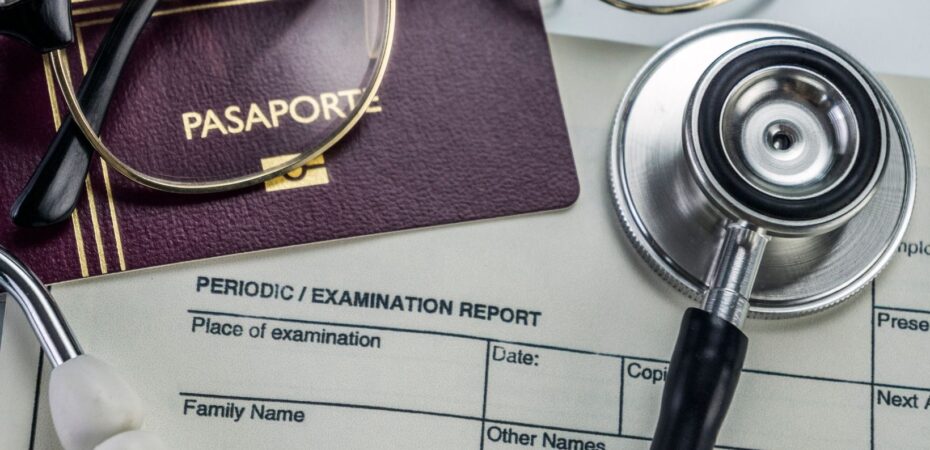Introduction
Travel and healthcare may seem like unrelated fields at first glance. However, there are important intersections between the two that are increasingly relevant for healthcare providers to understand in our globalized world.
With medical tourism on the rise, healthcare workers have new opportunities to care for diverse patients while gaining cultural insights. Travel also promotes continuing education and skill-building for providers seeking professional development opportunities abroad. At the same time, healthcare workers must advise patients on health precautions for travel and be prepared to care for issues arising during or after travel.
This article will provide an overview of the intersections between travel and healthcare, focusing on the implications for healthcare providers. Key topics include medical tourism, benefits of travel for providers, travel in healthcare education, travel health tips, and the future of this emerging relationship between travel and healthcare delivery.
The Concept of Medical Tourism
Medical tourism refers to patients traveling abroad to obtain medical treatment. Some common procedures sought by medical tourists include dental work, cosmetic surgery, elective surgery, and fertility treatments. However, patients may also travel for more complex care like joint replacements, cardiac surgery, and organ transplantation.
The medical tourism industry has expanded rapidly in recent decades. Approximately 14 million patients worldwide traveled abroad for healthcare in 2017, up from 750,000 US medical tourists in 2007. Analysts predict the global medical tourism market will reach $125 billion by 2021.
The growth of medical tourism impacts healthcare providers in several ways. Medical centers in popular destinations like Thailand, India, and Mexico are seeing high volumes of international patients. Providers at these institutions gain experience caring for diverse cultures and backgrounds.
Some US healthcare workers even obtain additional training in emergency skills, such as Advanced Cardiac Life Support, to better serve medical tourists. For example, taking steps to get your ACLS certification is valued when providing complex cardiac procedures.
The Benefits of Travel for Healthcare Providers
In addition to serving patients through medical tourism, travel offers healthcare providers many professional and personal benefits.
Travel allows healthcare workers to gain experience in a variety of settings. Short-term travel assignments are in demand across the country, from rural clinics to urban hospitals. This gives providers exposure to different patient populations, procedures, and organizational models.
Travel also enables continuing education and training. Healthcare facilities abroad often practice innovative techniques not yet adopted elsewhere. By working internationally, providers can expand their skill sets with new approaches.
Additionally, immersion in foreign cultures increases knowledge and sensitivity critical for quality care. According to one study, students who participated in cultural immersion experienced positive growth in cultural competence.
Professionally, travel allows for earning higher salaries with benefits like paid housing and travel. Personally, it facilitates adventure, relationships, and appreciation for diversity, which are all enhanced by the opportunities provided through Medical Solutions Travel Nursing Jobs.
Many travel nurses benefit from the short-term travel nurse housing solutions that agencies arrange, which are designed to provide comfortable and convenient living spaces close to their assigned hospitals or clinics. These housing options not only relieve the stress of finding and securing accommodations in new cities but also often include essential utilities and amenities, allowing nurses to move in and start working without hassle.
Travel and Healthcare Education
The educational benefits of travel are being increasingly recognized in healthcare fields. Cultural immersion programs are now common in medical, nursing, and other health professional schools.
These immersive experiences aim to build students’ cultural competence and awareness. Students are guided to reflect on their interactions with diverse communities and translate lessons into more sensitive patient care. Research shows cultural immersion produces a multi-domain positive effect on cultural learning.
Some schools also incorporate global health education through study abroad. Students witness disease prevalence abroad while learning about healthcare delivery in other nations. This motivates my interest in working internationally after graduation.
For current healthcare providers, continuing education conferences held internationally can satisfy requirements while allowing travel. Structured programs like Doctors Without Borders also grant hands-on experience in global medicine.
Overall, travel promotes transformative learning for healthcare students and professionals. The clinical exposure and cultural insights gained abroad lead to impactful growth.
Travel-Related Health Tips for Healthcare Providers
With international travel on the rise in the healthcare community, providers must be prepared to advise patients and protect their own health while abroad.

For patients, recommendations include visiting a travel clinic for immunizations and medications 4-6 weeks pre-travel. Routine vaccines, along with destination-specific ones like typhoid, yellow fever, and malaria prophylaxis, should be addressed. A travel health specialist can create a customized plan for the patient’s itinerary.
Healthcare workers planning travel should also schedule comprehensive pre-travel consultations. Their health is vital for helping others, so ensuring vaccinations are up to date is key. Providers should also pack medications, supplements, and supplies to maintain health, like oral rehydration salts. Safety measures like insect repellent, sunscreen, and water filters are recommended.
While traveling, healthcare providers must monitor their physical and mental well-being. Practicing healthy habits despite busy schedules and immersion in new cultures is important. Seeking medical care promptly when sick is also advised. Healthcare workers model ideal behaviors for travel health.
The Future of Travel and Healthcare
Looking ahead, travel and healthcare will likely continue to intersect in new ways. As medical tourism expands, healthcare systems must adapt to serve traveling patients. More providers may pursue cross-training or certification in areas like medical tourism management.
Technological advances also stand to transform travel-based care. Telemedicine makes consultations with far-away specialists possible. Drones can transport medical supplies to remote areas. Virtual reality may supplement global health education.
While promising, these changes raise some concerns. Experts warn medical tourism could overburden healthcare systems in popular destinations. And technology cannot fully replace in-person care based on human connection.

Healthcare providers will play a key role in shaping the future relationship between travel and their field. Their firsthand experiences, research, and guidance on policies around medical tourism and technology integration can lead to ethical advancements. By embracing travel’s benefits while mitigating risks, they can usher in positive progress.
Conclusion
As the examples and insights provided demonstrate, travel intersects with healthcare in diverse ways highly relevant to healthcare providers. Understanding medical tourism empowers serving more patients from different backgrounds.
Travel enables professional development through impactful experiences abroad. And providers must advise patients on travel-related health precautions while caring for their own well-being.
While travel presents some challenges, healthcare providers can maximize the opportunities it offers. By incorporating travel into continuing education, seeking contracts worldwide, and guiding policy around emerging travel-based care models, they will gain invaluable knowledge to improve care quality for all. The intersection of travel and healthcare delivers benefits for providers and patients when leveraged thoughtfully.


 By
By 





